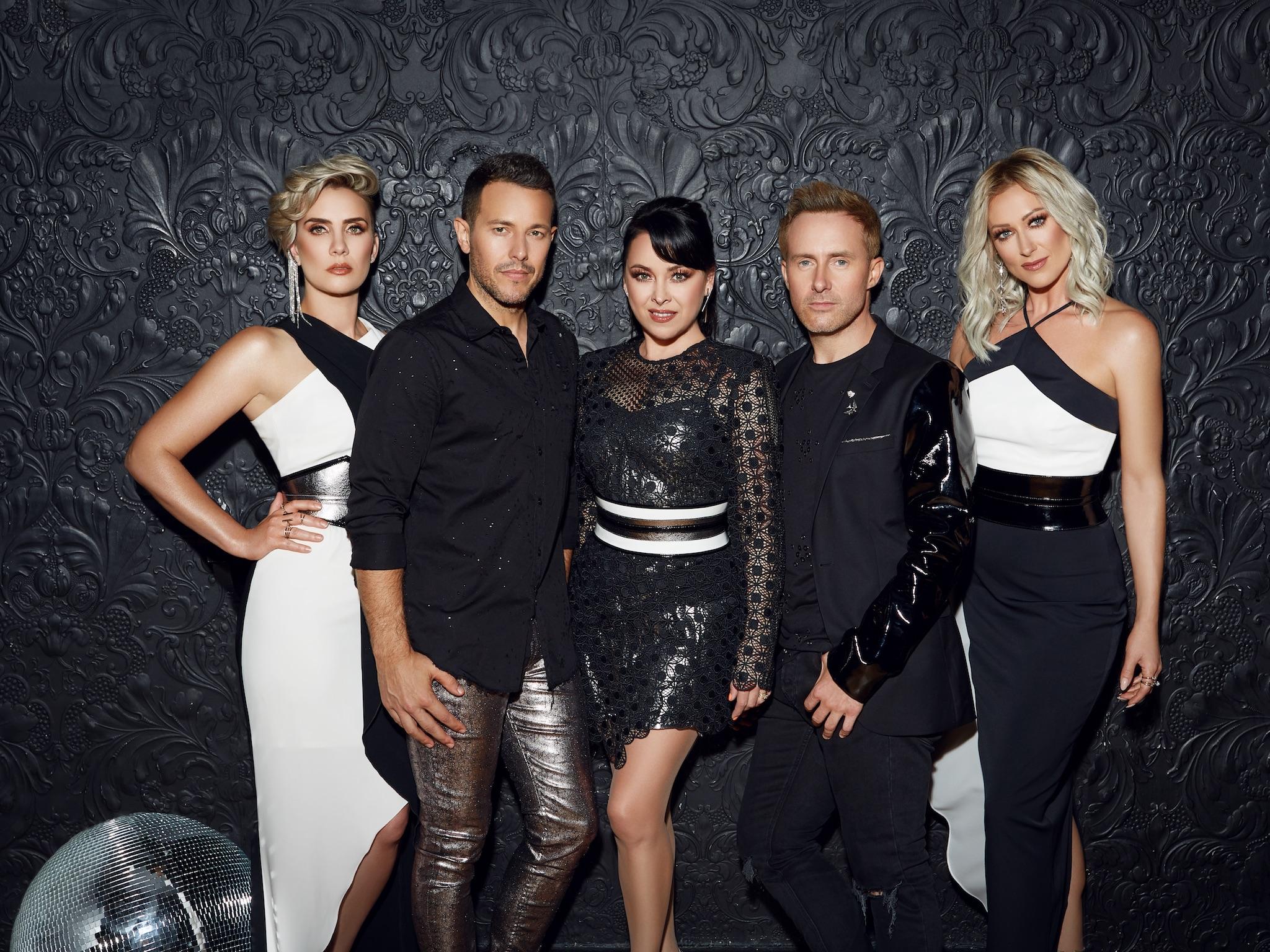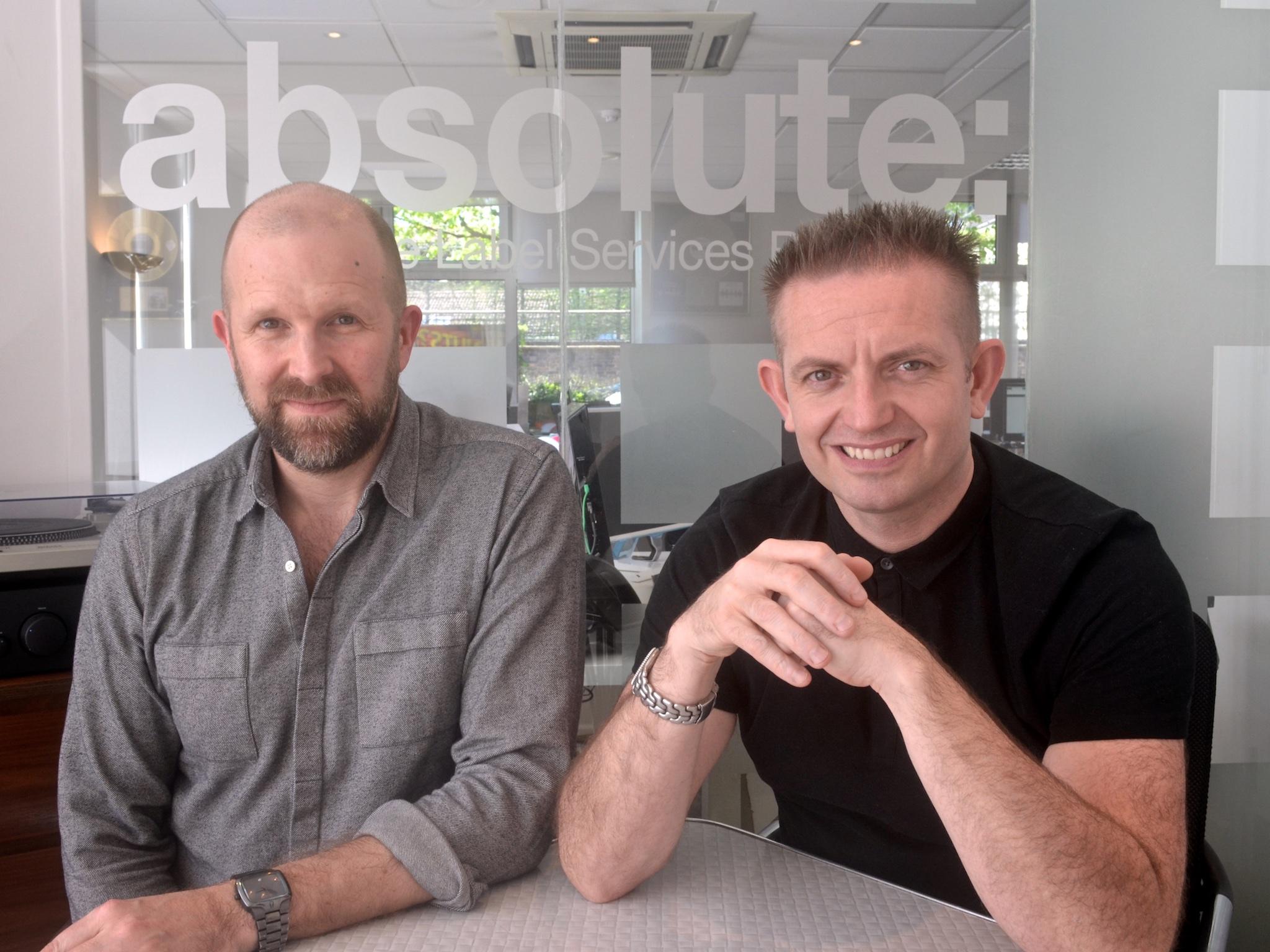'We are in control': how Steps used Absolute Label Services to create their own comeback
The label services model has grown rapidly as music industry margins have shrunk and artists have sought more control over their profits

Your support helps us to tell the story
From reproductive rights to climate change to Big Tech, The Independent is on the ground when the story is developing. Whether it's investigating the financials of Elon Musk's pro-Trump PAC or producing our latest documentary, 'The A Word', which shines a light on the American women fighting for reproductive rights, we know how important it is to parse out the facts from the messaging.
At such a critical moment in US history, we need reporters on the ground. Your donation allows us to keep sending journalists to speak to both sides of the story.
The Independent is trusted by Americans across the entire political spectrum. And unlike many other quality news outlets, we choose not to lock Americans out of our reporting and analysis with paywalls. We believe quality journalism should be available to everyone, paid for by those who can afford it.
Your support makes all the difference.When pop group Steps were arranging their 2017 comeback tour, they knew signing to a record label wouldn’t work for them like it had in the past.
“We weren’t really a good prospect for a major,” says Claire Richards from the band. “So it was a choice of deals which weren’t right for us, or doing it ourselves.”
There were certain things the band could do alone or with help from management, like making a record. But when it came to releasing the record and the licensing, marketing and manufacturing that goes along with it, they needed to employ experts with all the knowledge and experience that comes from working at a label.
Enter Absolute Label Services. Absolute was started by Henry Semmence and Simon Wills 20 years ago. But it has grown rapidly in recent years as music industry margins have shrunk and artists have sought more control over their profits.
All three UK major labels now have a label services division: Universal has Caroline, Warner Music has ADA and Sony has RED, which merged with The Orchard in 2017. Absolute has stayed independent, offering artists that once belonged to majors an alternative – especially heritage acts that can rely on a fanbase to buy tickets to shows.

Absolute started distributing records in 1998 when physical albums were the only product. “We offered a service where we could get records to record shops,” says director Wills. The company introduced more services over the years as artists needed more resources to make the most of their recordings.
It added digital delivery, syncing and licensing operations, and other services to make sure bands get royalties when their music is used. It continues to develop its proprietary digital portal, which gives real time information on sales and streaming, so artists can see if sales spike in a certain territory after a show, for example.
Mark Dowling, Wills and Semmence maintain full ownership of the company alongside Deborah Cutting, finance director. This independence can be an appealing prospect to new artists. As major labels have become more cautious, acts often have to do some of the ground-breaking themselves before they can hope for a contract.
Absolute can tailor campaigns to suit any budget, from £500 into the hundreds of thousands. Dowling says: “[Artists] can build up an audience pretty quickly – communicating with new fans, selling tickets for shows and getting big numbers – under their own steam.”
No artist has proved the potential of self-releasing more than Stormzy. He was reportedly offered record deals with all three major labels and turned them down, choosing instead to distribute his 2017 album Gang Signs and Prayer through Warner label services division ADA, with Warner/Chappell handling publishing.
Absolute works with growing artists including Gizmo Varillas, Ferris & Sylvester, 67 and Guvna B. But its bread and butter has been returning acts including Bananarama, Lisa Stansfield and of course, Steps.
“Absolute have plugged a gap in the market for heritage act – which is really an act who have come out the label system and come out the other side,” says Jon Webster, a music industry consultant.
Richards herself says: “It’s a different time. The whole music industry has moved on so much.”
Steps signed a traditional record contract with Jive Records when they formed in 1997 that gave them a 20 per cent cut of the royalties, while the label took the rest.
Richards says the band never really knew who was paying for things: “I remember being plonked on private jets to take us from Birmingham to London. It was so extravagant. But the amount of records that you sold in those days far outweighed the money that was spent.”
Steps sold 2.5 million copies of their first album worldwide, establishing a huge fanbase that the band hoped would still be behind them when they started hatching plans for the reunion. “Everyone had their hopes, but we didn’t know what a Steps album would sell,” says Richards. “It’s very difficult to get a record deal anyway, there are fewer deals and less money than in 1997.”
Plus they were wary, second time around, of being ripped off: “It’s only from being ripped off that we learned our lesson. We wanted to make sure that this time we knew what’s going on and being with Absolute gives us that.”
Working with Absolute gave Steps the opportunity to agree budgets up-front: “It’s nice to know where every penny is going and how it will affect your album. It’s all very much linked.”
The campaign exceeded all expectations. The album Tears on the Dancefloor landed at number two on the charts, selling 115,000 copies. A 22-date UK area tour sold out. By the end of the tour, they had played to 250,000 people and appeared on prime time slots on Saturday night TV.
“Steps had done the hard part of connecting and engaging an audience,” Dowling says. “If you’ve got that audience there, why would you go to a label and sign away the control?”
The prospect of running their own campaign is too much work for many emerging artists. “It’s bloody hard work to do it yourself,” says Webster. “If you have something that explodes, you’ve got to be on top of your game to do all those deals. I always say to people, ‘This is really hard work – it’s not just put out a single and employing a plugger and a press officer.’”
Yet for some heritage and emerging artists, label services are providing an important alternative. “It takes a lot of getting used to but at the end of the day, we are in control of the budget and at no point do we have to do something we don't want to do,” says Richards. “Back in the day, we had no choice.”
Join our commenting forum
Join thought-provoking conversations, follow other Independent readers and see their replies
Comments